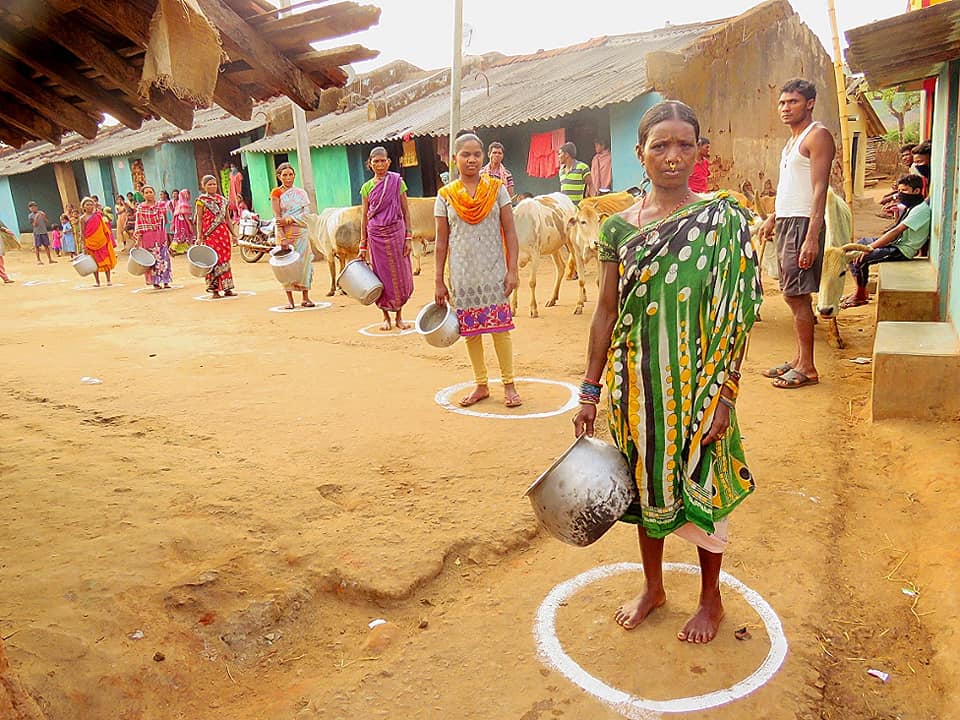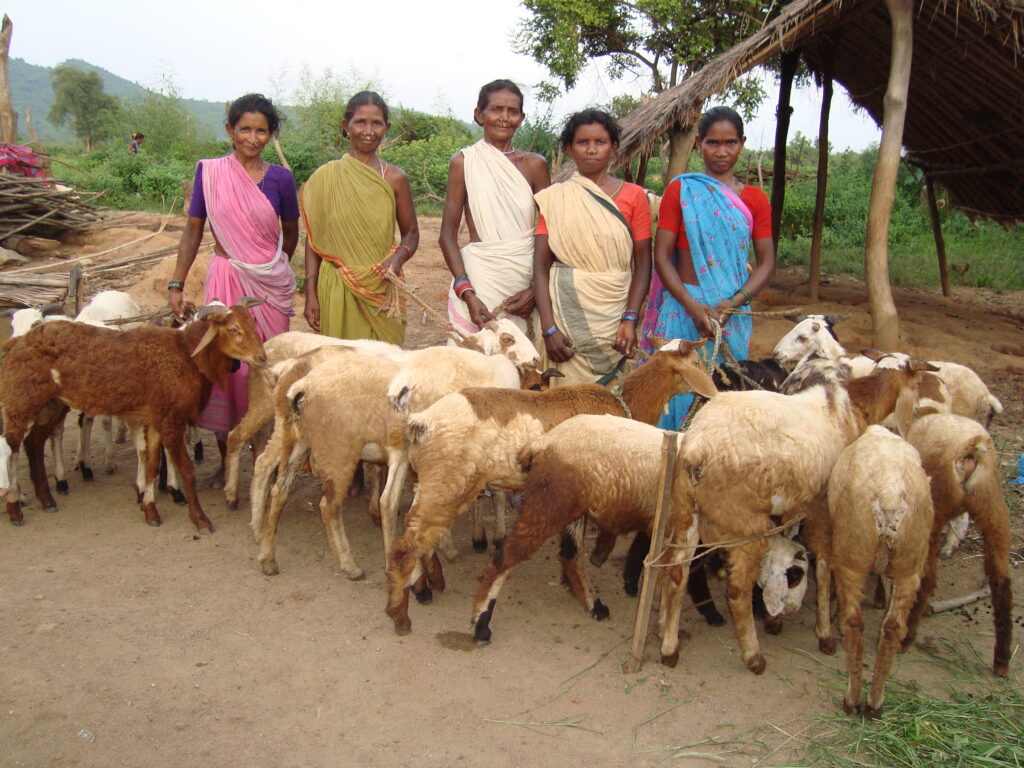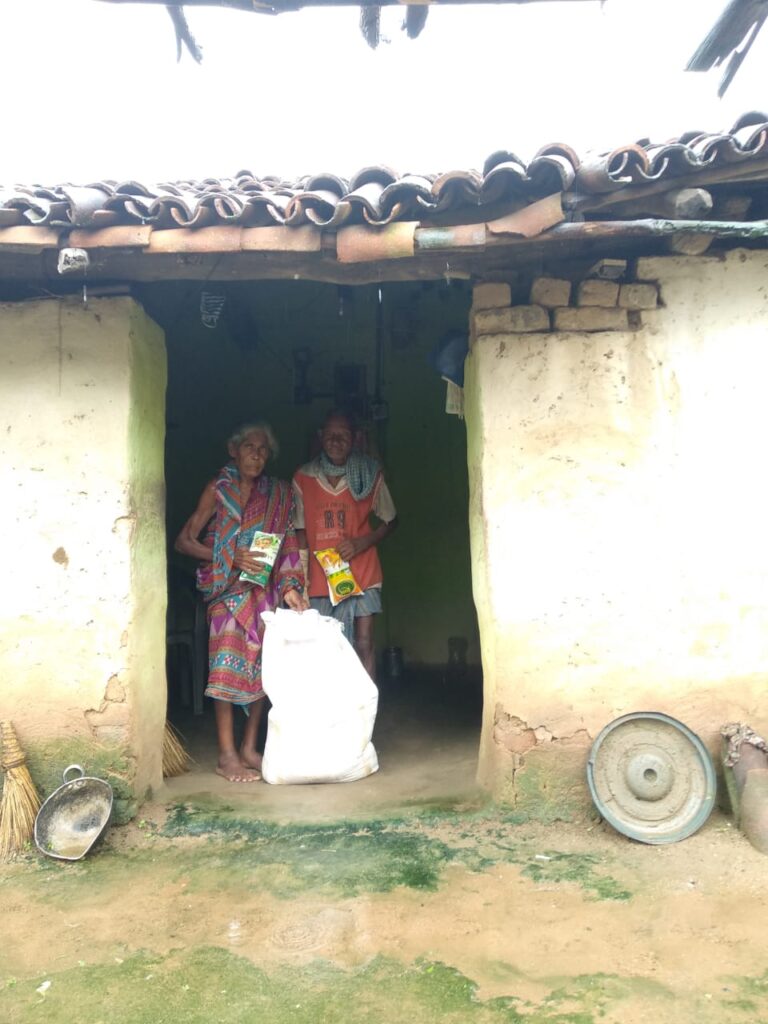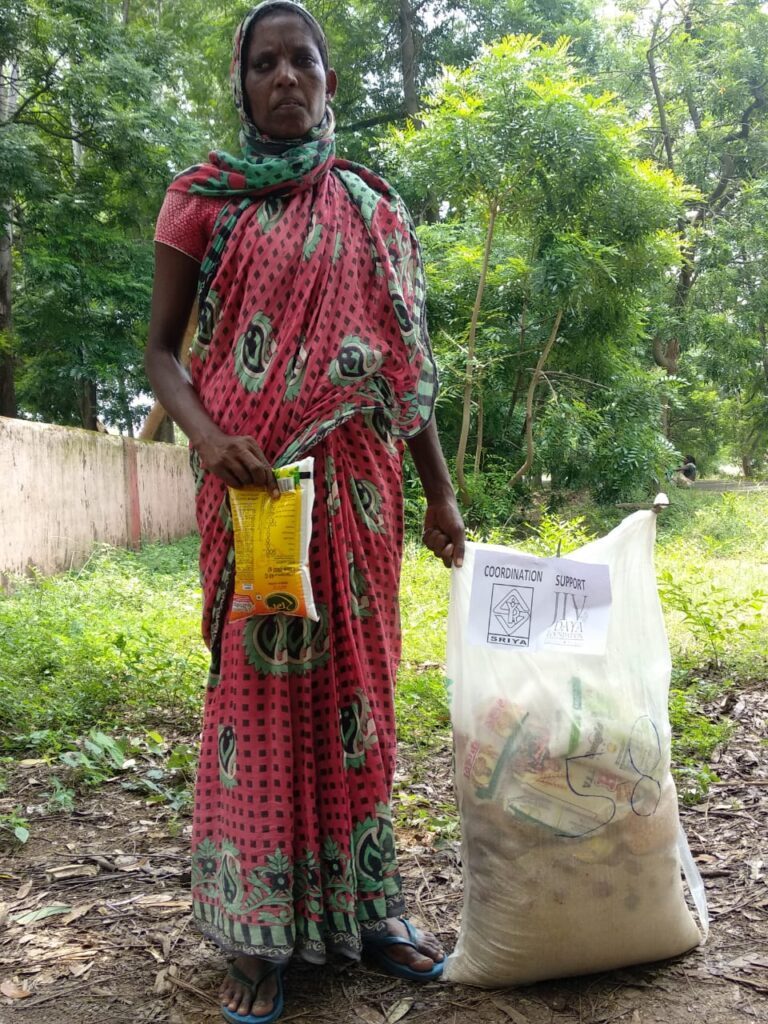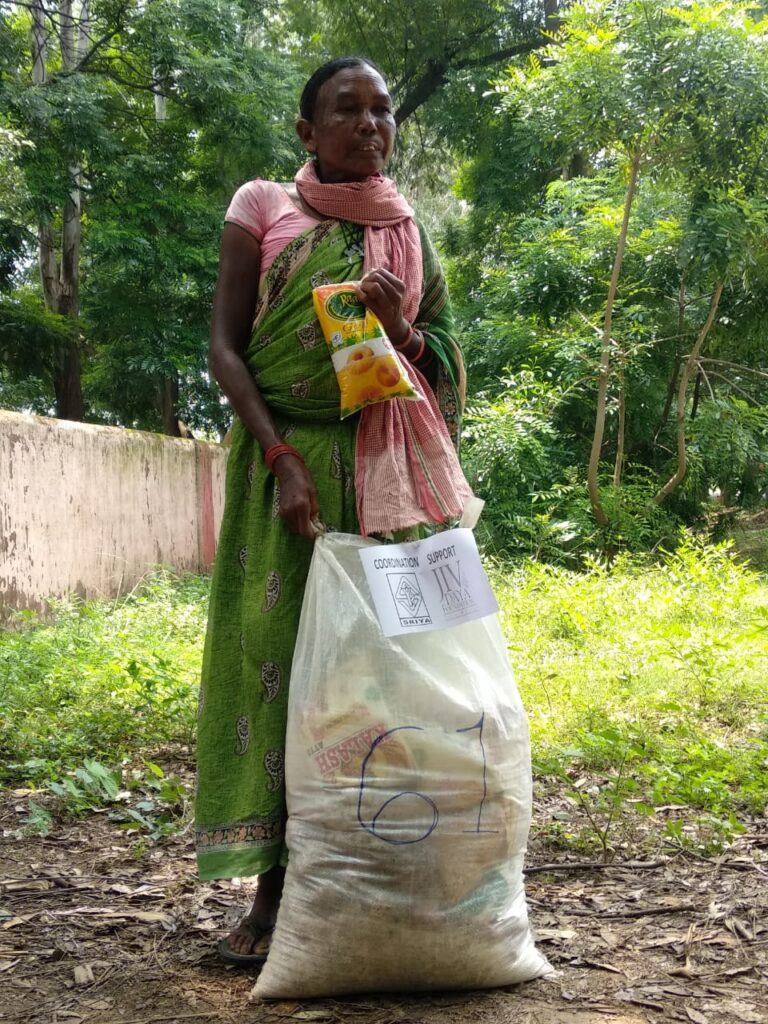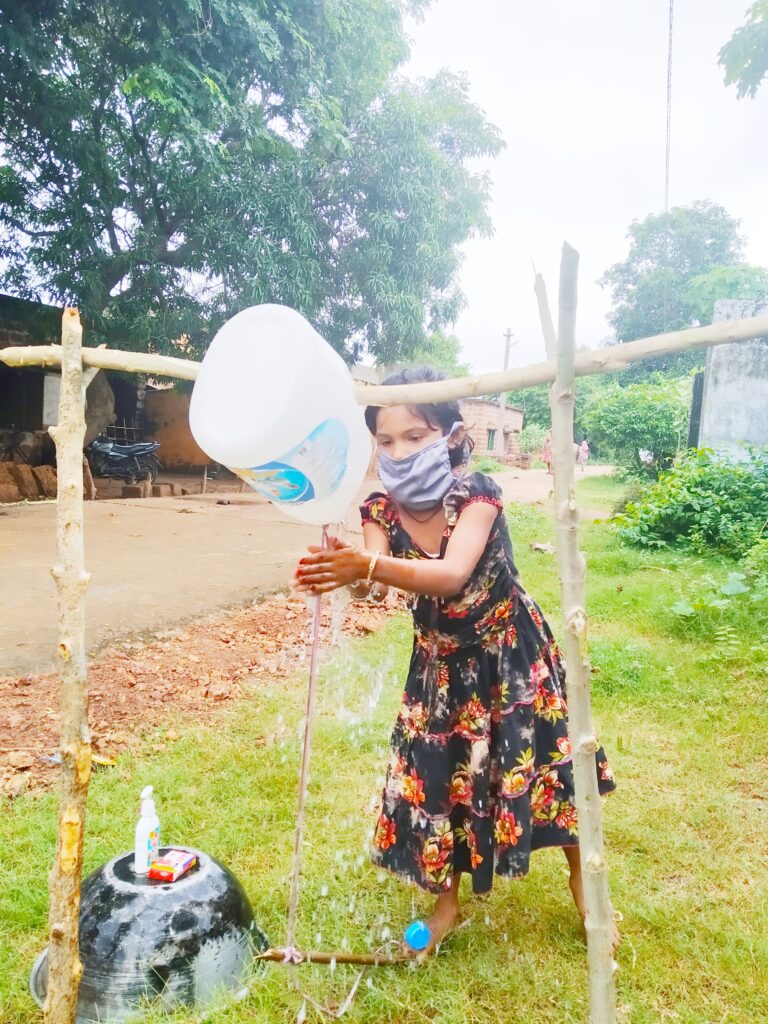THREE STORIES AND MANY MORE!
Relief Kits
And
The Stories behind Poverty and Hunger
| The Stories Behind Poverty and Hunger Although the ration material is for two weeks, a majority of the 80% recipients considered it is a substantial onetime gift for them. They will manage household nutrition for at least a month if they supplement with their small stock of minor millet (Mandia), collection of seasonal vegetables grown in the forest including the local delicacies – wild mushroom and bamboo shoot. |
In the tribal families of Tangarpalli Block of Odisha, women run their household economy. Men in general forcefully take away the little cash and kind saved by women for buying country liquor. This behaviour of men tremendously affects the household food security and increases hunger of the family, as shared by the beneficiary women. The women SHGs of the beneficiary communities decided in favour of the women of the household to be the recipients of the kits containing about 28.2 Kg dry ration material.
Although the ration material is for two weeks, a majority of the 80% recipients considered it is a substantial onetime gift for them. They will manage household nutrition for at least a month if they supplement with their small stock of minor millet (Mandia), collection of seasonal vegetables grown in the forest including the local delicacies – wild mushroom and bamboo shoot.
The story is typical for the 257 such beneficiaries. A majority of above 80 per cent of the recipients were women. About 5% of recipients were people with disability (PWD), and 35 per cent were either female-headed households or single women. Fifteen per cent were a widow. About 90 per cent were without ration card to access to the government-sponsored food security program. Most of the recipient families included returnee migrant members in the wake of COVID-19 lockdown.
“Hunger leads to violence.”
The relief kit will relax her pain at least for sometimes
– So says Suchitra
Suchitra, who belongs to the Oraon Tribal Community, has three other members in her family to support. Suchitra has lost her job as a domestic help in Rourkela in the wake of COVID-19 lockdown. Suchitra is landless, and she has no ration card. She does not have necessary documents to avail ration card although she is one of the poorest of the poor in the community. Due to lock down and quarantine rules, she could not move for any work and stayed at home.
| “Hunger leads to violence” The relief kit will relax her pain at least for sometimes Suchitra’s husband is demanding of food and often resorts to violence and abuses. She says hunger leads to conflict and violence as everybody is confined at home. The relief will relax her pain at least for sometimes till she explores for a new job. |
Inclusion of her name for a free relief kit created many hopes until she received one. She said it was a big thing for her at the time of the COVID crisis. Being a woman, feeding the family is a huge responsibility on her and it has become further challenging for her in the wake of the continuous lockdown and exhaustion of her little saving.
Her husband is demanding of food and often resorts to violence and abuses. She says hunger leads to conflict and violence as everybody is confined at home. The relief will relax her pain at least for sometimes till she explores for a new job.
The story of another beneficiary Subasini Joora, a Gond woman, is no different from Suchitra. She has a fear that the situation may not change. Amdist scarcity of food, this is how women in tribal households of this part of the country manage family nutrition along with increased gender-based violence during the confinement. Still, the fight against hunger continues in this tribal majority district!
Babita Paule’s Ration Kit
And
Her story of Gender Based violence (GVB)
| Her story of Gender Based violence (GVB) For Babita Paule, the ration kit from SRADHA, is a gift from the God, as she expressed getting emotional. Although her relief from violence is far, but good food for the husband may reduce it to some extent. She says it may also lead otherwise. Seeing this amount of ration, her husband may further pressurize her to hand over her cash which she has saved for the difficult time. She says even though the ration kit is for two weeks, she will be able to manage it for at least a month or more by adding a vegetable from her back yard and supplementing with forest produce like forest mushroom, greens etc. |
Babita is about 45 years old but not sure about her actual age as she has no documentary proof. She stays with her husband and her son. Paule had been working as domestic help and a cook in the nearby town. Covid-19 snatched her job as her employers evicted her. She is passing through many uncertainties as she is unsure about when normalcy to return. Paule shared that she has become a victim of daily violence from her husband ever since she returned home from Rourkela after the declaration of the lockdown. The fight is on the demand of the husband to buy liquor. Paule refuses to surrender the small saving which she has saved to tie up with the crisis and run her kitchen.
When she was earning, she had never objected to meet the demand of her husband. Paule shared that it was not only in her case, but it was also widespread in her community where the incidence of gender-based violence had increased, and women and girls were the victims during the confinement in the wake of Covid-19.
For Paule, the ration kit from SRADHA, is a gift from the God, as she expressed getting emotional. Although relief from violence is far, good food for the husband may reduce it to some extent. But she says it may also lead otherwise. Seeing this amount of ration, her husband may further pressurize her to share her cash which she has saved for the difficult time. She says even though the ration kit is for two weeks, she will be able to manage it for at least a month or more by adding a vegetable from her back yard and supplementing with forest produce like forest mushroom, greens etc.

